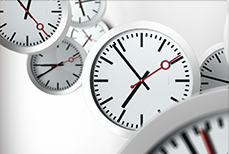Emergency Dentistry
At Summit Dental, our team respects the fact that emergencies pop up when least expected, like during a soccer game or right before bedtime, at home. Our patients are the most important part of our practice, so we offer emergency dentistry. If you experience an urgent oral health situation during office hours, call us and we’ll do our best to let a dentist see you the same day, if necessary. After office hours, call our main line to learn how to get in touch with our on-call staff member.
Are you having an emergency? Call us now at
702-834-7755.
If you have a severe laceration or potentially broken jaw, do not wait. Go straight to the nearest emergency room, and call us once the patient is under a doctor’s care. Please put our number in your cell phone now. It’s 702-834-7755.
Who Needs Emergency Dentistry?
When a tooth is knocked out, if it still has its nerve and did not break structurally, it might be successfully reattached, but time is of the essence. (Read below on first aid tips for this and other common dental emergency situations.) An acute toothache that keeps you up at night and has kept you from working should be addressed by a dentist as soon as possible. These are true dental emergencies that require immediate treatment.
What Can Wait?
Some urgent situations can wait until the next day for treatment, if an emergency occurs after office hours. For instance, if a crown, filling, or permanent bridge comes loose, it needs to be replaced as soon as possible so that you can eat properly. A tooth that breaks or chips, but does not cause pain, can be seen the next day – or even the next week, if that works better for your schedule. When a nagging toothache doesn’t go away after a few days, you need to see the dentist. However, you don’t necessarily have to see a dentist immediately.
Are you having an emergency? Call us now at
702-834-7755.
First Aid for Dental Emergencies
Whether or not you see the dentist immediately following the injury, dental emergencies require first aid from a knowledgeable person who’s on the scene of the accident. By reading these tips, you’ll have the information you need to help out when the time comes.
Toothache
The first course of action for a toothache is to thoroughly rinse the mouth and floss teeth. Commonly, food particles lodged between teeth can cause significant discomfort. Simply removing the food will relieve pain. However, if flossing does not resolve the issue, the patient should take an appropriate dose of over-the-counter pain medication, such as Tylenol or Advil, and call our office. Dental infections can become quite serious, left untreated. Not only will pain increase, but the infection could spread into the blood stream and affect other parts of the body.
Dislodged/Knocked Out Tooth
When an accident causes a tooth to come out of its socket completely, first determine whether the lost tooth is a primary tooth (baby tooth) or permanent tooth (adult tooth). Primary teeth are going to fall out in time, so while you should visit the dentist for a checkup to make sure the site of the lost tooth is healthy, you do not have to try to find and save the tooth. You should check the child’s mouth, inside his lips and cheeks, and beneath his tongue, to remove any pieces of the damaged tooth. You do not want him to choke on it or aspirate it.
If a permanent tooth is knocked out, first address the patient. He/she should apply a clean, moist cloth or wet teabag to the empty, bleeding socket and exert some pressure. Biting down on the towel or teabag is sufficient. Pressure will help with clotting. Next, find the tooth or its pieces, gently rinse them in clear, clean water if they are dirty. Be careful with any remaining nerve tissue, which would extend from the root of the tooth. Do not touch the nerve. Place the tooth or its pieces into a small container, such as a Baggie, with either milk or the patient’s saliva to keep the tooth moist. Then, call our office to let us know you’re coming. Transport the tooth and patient to our office, as advised.
Broken/Chipped Tooth
When a tooth is broken or chipped, simply gather the pieces and place them in a small container. Call our office, and we’ll let you know what to do next. Treatment will depend upon the extent of damage.
Schedule Your Appointment
Whenever you experience a toothache, oral abnormality, or dental emergency, call Summit Dental today at 702-834-7755. We provide emergency dental care for current and new patients, so save our phone number in your phone for quick reference in the future. New patients welcome!


